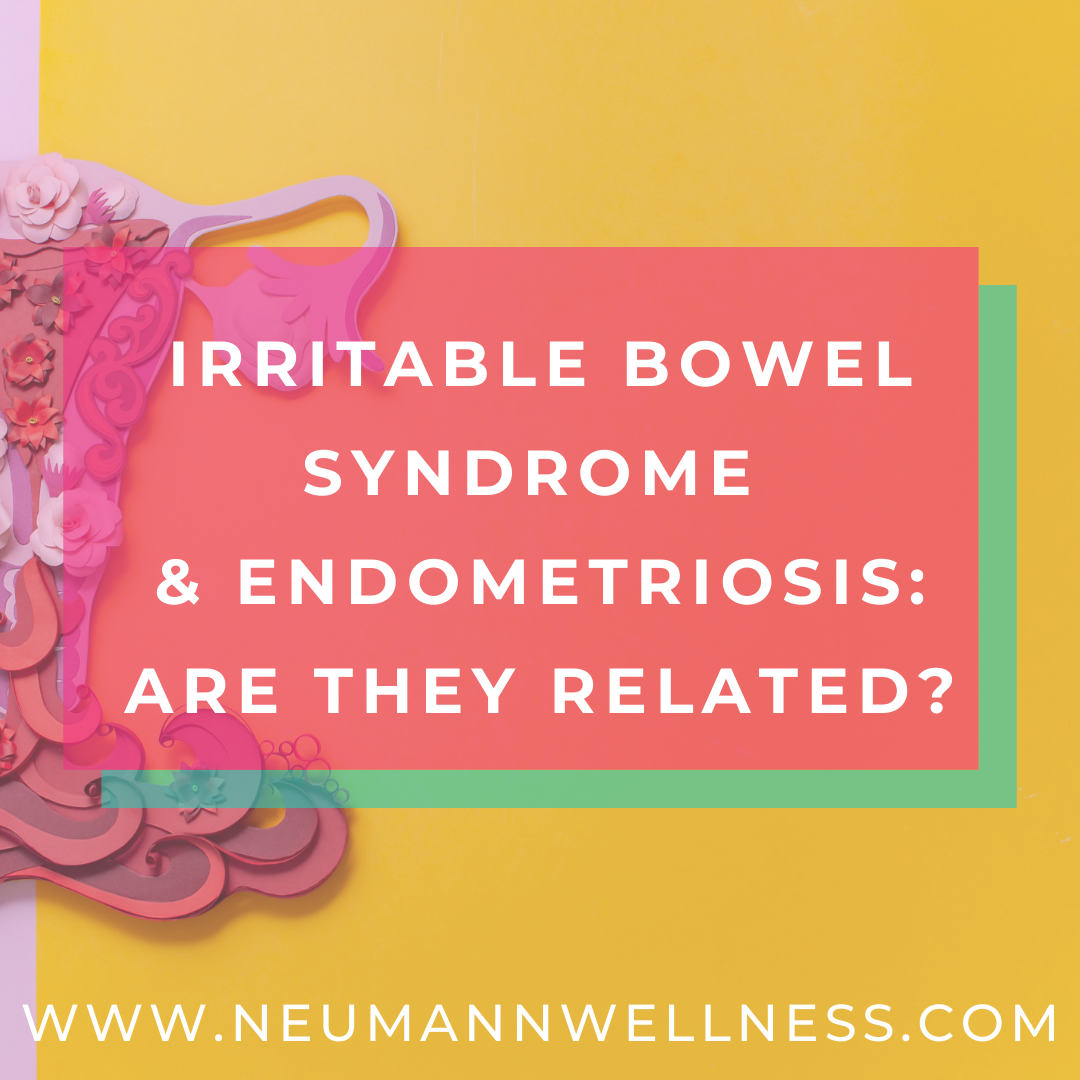
Irritable Bowel Syndrome & Endometriosis, Are They Unfortunate Relatives?
March is Endometriosis awareness month. Practitioners, and patients alike, are largely unaware of the link between Irritable Bowel Syndrome (IBS) and endometriosis (endo). Today I’ll shed some light on this important topic and discuss why these conditions are often interrelated for some women.
Cramping, bloating, gas, diarrhea, constipation, & abdominal pain.
Are these symptoms of IBS or endo? It turns out the two are related.
Interestingly, over 90% of women diagnosed with endo experiene the very same digestive symptoms as IBS sufferers. This makes it hard to tell the difference between the two or even get a proper diagnosis.
Sorting out the differences between IBS & Endo
I’m about to dive into how IBS and endo are more connected than you might think. The good news? It’s not all in your head. Women have the highest risk of developing IBS, with endometriosis playing a major role as a contributing factor,
Before we start, let’s clear up a some definitions before we get into the details…
What is Irritable Bowel Syndrome (IBS)?
I’m going to take a wild guess and assume you’re either already way too familiar with IBS or know someone who’s battling it.
For the uninitiated, IBS is a nasty cocktail of abdominal pain and either diarrhea, constipation, or the delightful combo of both.
To officially get diagnosed with IBS, doctors need to see these symptoms crop up for at least 3 days over the past 3 months.
But here’s the thing: ‘IBS’ is often the blanket term doctors slap on your digestive issues when they don’t have a better label for it. That’s why something like endometriosis might fly under the radar, leaving the real problem unaddressed.
What is Endometriosis (Endo)?
Endo is a chronic inflammatory disorder impacting 190 million women worldwide.
Endometriosis is when tissue, kinda like the lining of your uterus, starts growing outside your uterine cavity. That lining? It’s called the endometrium—yep, that’s where the name comes from.
Here’s the thing you might not know: those little immune cells called macrophages? Yeah, they’re behind the mess that is endometriosis, fueling symptoms like excruciating periods, painful intercourse, and bowel movements that make you want to scream.
When endometriosis spreads to the bowel, the cells swell and bleed as they would during a menstrual cycle causing IBS-like symptoms of bloating, pain, and altered bowel habits.
Drivers of inflammation including diet, an imbalanced microbiome, and micronutrient deficiencies can exacerbate endometriosis flares which are the very same factors that can exacerbate IBS flares as well.
Overlapping Features
On top of all the GI misery, endometriosis and IBS have a lot in common. Think low-grade inflammation and visceral hypersensitivity (aka a lower pain threshold in your abdomen).
Most women with IBS either go undiagnosed or get the wrong diagnosis. While endometriosis never even enters the conversation, despite it being a major player in abdominal complaints.
The lack of communication between GI doctors and gynecologists means it can take up to 11 years to get an endometriosis diagnosis.
Studies show women diagnosed with IBS are three times more likely to actually have endo.
Even though we know there’s a solid cause-and-effect link between IBS and endo, doctors still rarely connect the dots. Commonly leaving endo undiagnosed in women with IBS.
Since both conditions are driven by inflammation and immune issues, digestive problems could easily be a red flag for either one.
What Helps Women Struggling with IBS + Endometriosis?
There are many treatments to ease IBS symptoms experienced by women living with endometriosis. Most of what I focus on in my practice is dietary + lifestyle based.
There’s great evidence that an anti-inflammatory diet can help with both conditions. This is why I run MRT food sensitivity testing on all of my clients.
When we remove foods and chemicals that are causing inflammatory reactions in the body, we can see a significant reduction in GI symptoms almost immediately.
Food sensitivities can occur with ANY food or chemical. This means even healthy foods you eat such as spinach, salmon, or turmeric could be causing an unhealthy immune reaction in your body.
That’s why it’s so important to run a a highly accurate food sensitivity test instead of playing the guessing game as to what your food triggers are.
We’ll also want to look at what imbalances in the gut could be triggering additional inflammation. Could a pathogen be causing leaky gut, leading to all of those food sensitivities you’ve developed?
Getting a comprehensive stool test can help guide the best strategies to address additional underlying imbalances going on inside the gut.
Micronutrient imbalances are another factor that can lead to unwanted inflammatory responses in the body. Is your ratio of anti-inflammatory to inflammatory fats favorable? Are you lacking anti-inflammatory nutrients?
All of these factors I’ve just mentioned often get over looked by most practitioners, although they are a simple fix.
If you want to actually see some relief, you need a game plan—one that mixes the right diet and nutrients, and fits your life like a glove.
Here’s the Best Part: I’ve Got Your Back in Finding Your Way to True Vitality
No more guessing games, no more randomly eliminating foods and hoping for a miracle.
I’m here to help you design a clear, customized path to wellness that’s built specifically for your body. We’ll pinpoint the exact foods causing your gut issues, then work together to create a plan that heals and restores balance. This isn’t a one-size-fits-all approach—it’s a solution tailored to you.
Ready to uncover the true cause of your gut inflammation and start your transformational gut healing journey? My program is custom-built and reserved only for those who’re ready to go all in. Schedule your digestive assessment with me to get started.
References:
https://www.ncbi.nlm.nih.gov/pmc/articles/PMC5737931/
https://www.sciencedirect.com/science/article/abs/pii/S0301211520300403
https://www.sciencedirect.com/science/article/abs/pii/S147264832030225X
http://jpp.krakow.pl/journal/archive/04_19/pdf/10.26402/jpp.2019.2.09.pdf
https://bmjopen.bmj.com/content/10/2/e032321.abstract
https://www.sciencedirect.com/science/article/abs/pii/S1590865817313348

